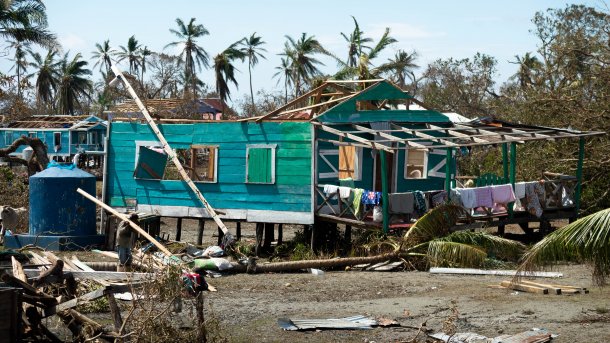Online chatter drowns out safety information
When natural disasters occur, they are also a central topic on social networks. However, important information is often displaced by pictures of dogs.

(Image: Jeiner Andres HP/Shutterstock.com)
When natural disasters strike and people on social networks argue about politics or worry eloquently about pets, this takes up space that is needed for important information from authorities. This was confirmed by a US research team on the basis of posts on the short message service X (then still Twitter) that were sent during hurricanes Harvey, Imelda, Laura and Florence in the USA. For example, 24 of the 50 most-discussed topics during Hurricane Harvey were about dogs affected by the severe flooding. In contrast, only seven were about safety information for the public. That's obviously a problem when it comes to informing people about how to protect themselves, says co-author Jose Ramirez-Marquez of the Stevens School of Systems and Enterprises.
Lack of space for dog pictures Safety warnings
In the case of the other hurricanes, too, important information has often been replaced by chatter about animals or politics. And this is actually a zero-sum game, because all "the oxygen" that these conversations take up online is not enough for the "potentially much more important information" to get through. It's like being at a loud party: when everyone is discussing politics out loud, it makes it extremely difficult to be heard, says Ramirez-Marquez. Public announcements about natural disasters are often about where help is needed and it is often important to speak directly to those affected. This is made more difficult.
Videos by heise
However, the study also suggests ways to counter this imbalance. For example, it was recognized that descriptions of the consequences of natural disasters attract more interest. Combining this with important information could potentially generate more attention for the latter on social networks. It is also important for authorities and politicians to focus on the essentials. They should not allow themselves to be distracted and drawn into political debates, for example. It would also be helpful if social networks themselves became active and prioritized the dissemination of government information. Governments cannot solve the problem on their own. The study was published in the International Journal of Disaster Risk Reduction.
(mho)